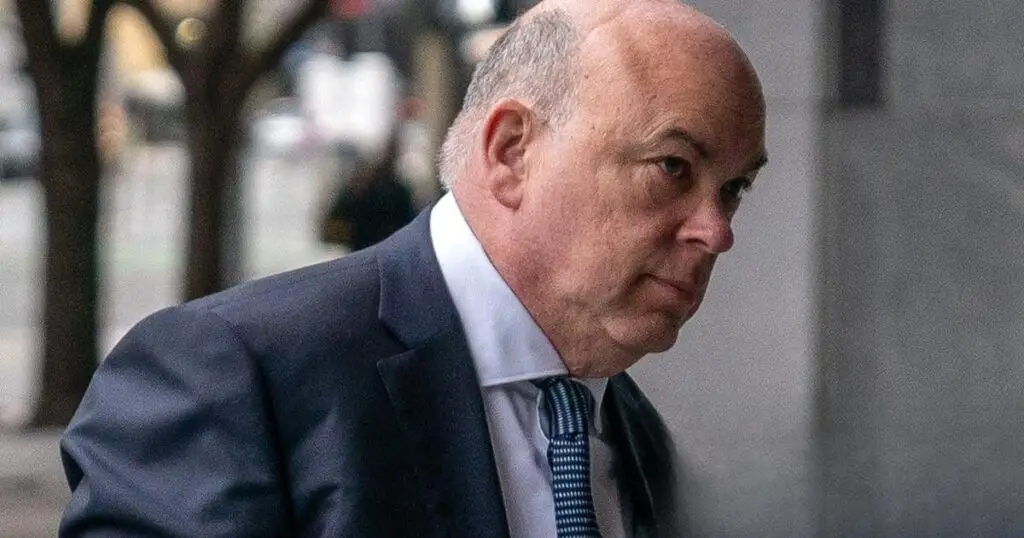In a startling revelation, UK tech tycoon Mike Lynch has shared his fears of dying in a US jail had he been convicted. Lynch faced serious fraud charges related to the sale of his company, Autonomy, to Hewlett-Packard (HP).
However, in June, Lynch was acquitted, sparking a debate over the fairness of extradition laws between the UK and the US. Lynch’s case is not just about his personal ordeal but also a significant reflection on the legal systems that govern international business and justice.
Acquittal After Fraud Accusations
Mike Lynch, a prominent UK tech tycoon, was cleared of fraud charges in June. He had been accused of defrauding Hewlett-Packard (HP) regarding the sale of his company, Autonomy, in 2011. HP claimed Lynch was responsible for a $5 billion fraud that led to an $8.8 billion writedown.
Lynch was initially charged with 15 counts of fraud in a Californian court. If convicted, he faced up to 25 years in a US prison. Lynch, who has a lung condition, believed he might not survive a prison term.”It would have been the end of life as I have known it,” he said.
Concerns Over Extradition Laws
Lynch’s case highlighted issues with extradition laws between the UK and the US. He spent two years fighting extradition before being returned to San Francisco for trial. Lynch criticised the power imbalance, stating, “A US prosecutor has more power over a British citizen living in England than the UK police do.”
Lynch expressed the need for legal reforms to prevent such situations in the future. He is particularly concerned about the potential for the system to ‘sweep individuals away’ without fair consideration of their circumstances.
Lynch spent 13 months under house arrest in San Francisco. He avoided watching anything related to prisons during this time, fearing the mental impact.
Ongoing Battle with HP in the UK
Lynch’s legal issues with HP are not entirely resolved. In 2022, HP won a civil fraud case against Lynch in the UK. The high court judge, Mr Justice Hildyard, ruled that Lynch had manipulated Autonomy’s accounts, inflating the company’s value.
HP’s claim for $4 billion in damages is still pending, though the judge has indicated the actual award will be much lower. Lynch plans to appeal the decision once the final damages are determined.
Lynch stated that his finances remain stable due to successful tech investments made by his wife, following his advice.
Plans for Legal Reform
Following his acquittal, Lynch aims to address perceived flaws in the legal system. He expressed a desire to fund a UK equivalent of the Innocence Project, a US nonprofit that helps wrongfully convicted individuals.
Lynch believes there should be a system allowing for a contrarian review of convictions, questioning their fairness. “The system can sweep individuals away,” he noted. “There needs to be a possibility that says: ‘The whole world thinks you’re guilty but, actually, was that a fair conviction?’”
Personal Insights and Future Endeavours
Lynch served as a science adviser to former Prime Minister David Cameron and was a non-executive director of the BBC. He received an OBE in 2006 for services to enterprise. Despite his legal battles, Lynch remains active in the tech industry.
He continues to be involved in various tech investments, which have kept his finances stable. Lynch’s focus now includes advocating for legal reforms and supporting initiatives to prevent wrongful convictions.
Removing power imbalances in extradition laws is among Lynch’s top priorities. He calls for an overhaul to ensure fairness and protect citizens from unjust legal processes.
Mike Lynch’s case sheds light on the pressing need for legal reforms. His experience underscores the significant issues within the current extradition arrangements between the UK and the US.
Lynch’s criticisms of the system aim to protect individuals from unjust legal outcomes. His advocacy for changes in extradition and wrongful convictions demonstrates his commitment to justice.
Lynch’s future endeavours in legal reforms could help many others facing similar legal battles.


